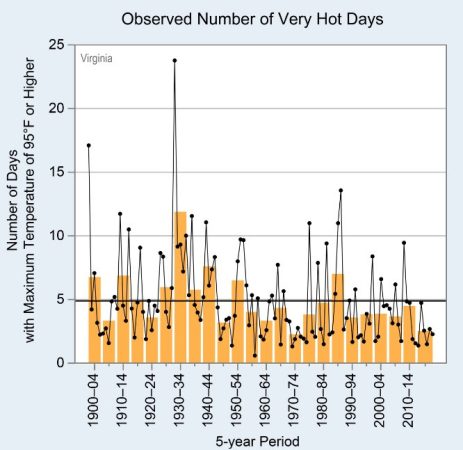Energy is our economy. Energy is the basis of wealth and a comfortable life. As Virginia chooses a new set of legislators to wrestle with the old and new energy issues facing the Commonwealth, here is a review of some of the key points the Thomas Jefferson Institute for Public Policy has been stressing and writing about over recent years.
Candidates in either party would do well to adopt them.
Energy Policy Talking Points
- The proper authority to decide how much electricity generation Virginia needs, and what forms of generation should be built next, is the State Corporation Commission, not the General Assembly.
- Low consumer cost and future system reliability should be the SCC’s priorities.
- To restore the SCC’s autonomy, repeal the 2020 Virginia Clean Economy Act (VCEA) with its arbitrary, mandatory targets and deadlines for wind, solar and battery generation and its arbitrary demands to close reliable thermal generation.
- VCEA compliance adds cost. The State Corporation Commission is projecting that Dominion’s residential price will rise more than 80% by 2035, compared to the cost before VCEA passed. The price increase for Appalachian Power residential customers will also be substantial.
- Wind, solar and back-up batteries will likely continue to proliferate, but fewer new plants should be controlled by monopoly utilities. Allowing independent providers to compete provides lower prices and protects ratepayers from operational risks. This is especially important for additional offshore wind projects, if any.
- The existing nuclear power plants in Virginia should remain in place and supplementing them with additional nuclear generation should be considered, but only if it passes muster at the SCC as needed, reasonable and prudent.
- Any decision to close a plant should be the SCC’s call based on cost or reliability.
- Virginia should repeal the Air Pollution Control Board regulation that eliminates free consumer choice over whether to buy an internal combustion, hybrid or battery operated vehicle. Virginia should resist following California into similar mandates dealing with large trucks, trains, and gasoline powered machinery.
- Governor Glenn Youngkin was correct to withdraw Virginia from the Regional Greenhouse Gas Initiative. Virginia should not impose a carbon tax on any form of energy at the state or local level. Flood mitigation can find other funding.
- Virginia localities should not be allowed to impose local restrictions or bans on the use of natural gas or other fossil fuels in homes, businesses and offices. A locality seeking to eliminate its municipally run gas utility should sell it, not close it.
The argument against those principles is founded on the belief that Virginia is already experiencing significant climate change and a crisis looms. What are the facts on “climate change” that candidates should understand?
- Without carbon dioxide and the greenhouse effect of our atmosphere, life on Earth would end. They are good things, not bad things. Are we seeing too much of a good thing? No.
- The level of temperature rise in the observed data is gradual and minimal, is not uniform, and may be due to natural causes. Nothing in the data points to pending catastrophe, and frankly only the most extreme of the projections do. Those get the media attention, of course.
- Weather is not climate. No individual weather event means anything when looking at climate patterns over three decades or longer. How about the long term trend lines?
- There is no evidence in the data that Virginia has experienced significant climate change:
- No increase in the frequency or severity of rainfall or drought.
- No increase in the frequency or severity of tornadoes or tropical storms.
- No acceleration in the slow rise of the coastal sea levels which have been underway for centuries. The subsidence of the land below Hampton Roads is a bigger factor than the rise in water levels. In part of the U.S. coastal relative sea level is dropping (something the media never mentions).
- No increase in flooding, although human development patterns that change water absorption and flow increase the damage done by flooding and need to be addressed. Heavy rains in the mountainous regions have always posed a local flash flooding threat.
- No rise in heatwaves or heat-related deaths, although once again human development patterns create heat islands that can raise local temperatures. The need for air conditioning is another reason electricity prices need to stay reasonable.
- NOAA data on Virginia shows the same minimal temperature rise (1.5 degrees Fahrenheit over a century) and no increase in adverse weather conditions to date, but then focuses on “projections” of future doom.
- There is no tangible, measurable “social cost of carbon.” It is a made-up number that forces irrational economic decisions.
- Virginia, the United States and most Western democracies have reduced the amount of greenhouse emissions from their economies. But the emission reductions they have made have been swamped by rapidly expanding use of coal and other fossil fuels in China, Russia, India and other growing economies. They render our efforts moot.
Since there is no climate crisis to address and no proof emissions will cause one, the most important priorities for our energy system should be reasonable consumer cost and reliable service. That means Virginia cannot expect to rely totally on renewable energy sources and will need to keep nuclear power and at least natural gas in the mix and may need to expand them.
For the same reasons – cost and reliability – Virginians should not be told that they must abandon gasoline or diesel vehicles or abandon the use of gas in their homes and offices. An all-electric economy is not feasible, and the costs will be astronomical. Consumers should be free to choose.
No issue pending in this election will have more impact on your financial future.






